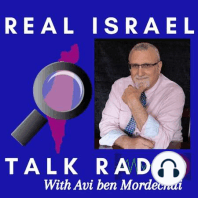50 min listen

Analysis of the Passion Week Timeline (PART 13): Event Number 10 - Passover Dipping Ceremony
Analysis of the Passion Week Timeline (PART 13): Event Number 10 - Passover Dipping Ceremony
ratings:
Length:
50 minutes
Released:
Feb 11, 2023
Format:
Podcast episode
Description
Let us read from Matthew 26:20-23. (and also John 13:26). When evening had come, He sat down with the twelve. Now, as they were eating, He said, “Assuredly, I say to you, one of you will betray Me.” And they were exceedingly sorrowful, and each of them began to say to Him, “Master, is it I?” He answered and said, “He who dipped his hand with Me in the dish will betray Me. In this series episode, let’s talk about the Passover tradition of dipping. The practice of dipping implies that Yeshua was likely bringing to memory a betrayal event involving Joseph because, in Hebrew, the word for dipping – taval (T-V-L– Tet Vet Lamed) is, in fact, found in Genesis 37:31 in the story of Joseph’s coat of colors, which is dipped into a basin of blood by Joseph's brothers. In the language of John 13:26, the Greek terminology is a bit different. Still, it is related as a word that has a similar meaning to the Hebrew term T-V-L, "taval." So, the word for dipping in John 13:26 is different from LXX (Septuagint) Greek in Genesis 37:31; they both express similar ideas. As the brothers of Joseph betrayed him with blood, so another betrayal was now in progress again, but this time, a betrayal of Messiah Yeshua ben Joseph fulfilling the words of Psalm 41:10 (English: v.9). All this looks to be how the House of Tzadok told the story, unlike the Judeans, who essentially skipped over the problem of the retelling of the betrayal story of Joseph and, instead, went straight to the lesson of the Passover redemption from slavery to freedom and the Hebrew nation's hope. In other words, the ancient Judean Seder was (and still is today) more focused on those evil Egyptians and not those evil brothers of Joseph because that might be way too uncomfortable! You will learn more today with this lesson - PART 13 - in this series on the events that shaped the last week of Yeshua's timeline chronology. Support the show
Released:
Feb 11, 2023
Format:
Podcast episode
Titles in the series (100)
Defining Transgression in the Bible by Ancient Roads: Real Israel Talk Radio